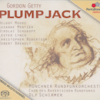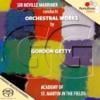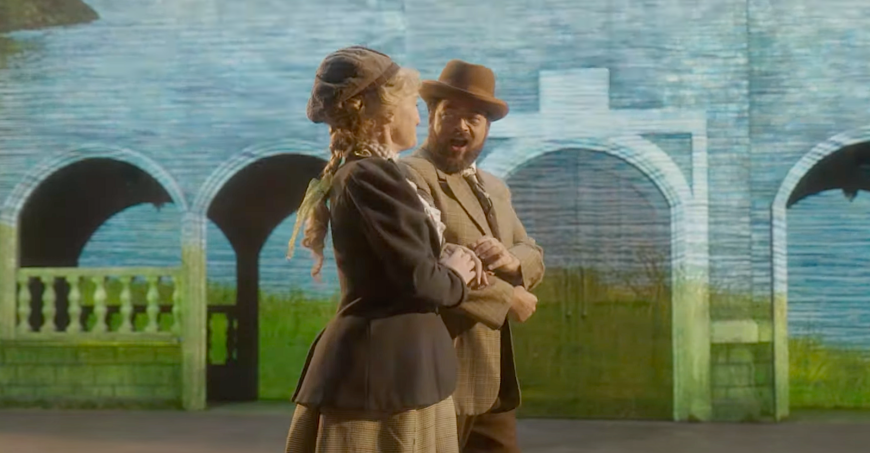
Commenting in October on the imminent premiere of his newest opera, composer Gordon Getty proposed that there’s “a Christmas Spirit kind of thing” in Goodbye, Mr. Chips. It felt indeed like a harbinger of the holidays when the opera, adapted from James Hilton’s 1934 novella of the same name, premiered on film at the Smith Rafael Film Center in San Rafael on November 14. Long-time acquaintances and colleagues, including Speaker of the House Nancy Pelosi, took time to greet the composer and each other before the opening titles, appearing over the image of Lester Lynch, in the role of physician Merrivale, silently perambulating the setting of the Brookfield School, luminously evoked by production designer Jacquelyn Scott. The music commences as the collective spirit of the Brookfield boys, voiced in academic Latin by the Young People’s Chorus of New York City.
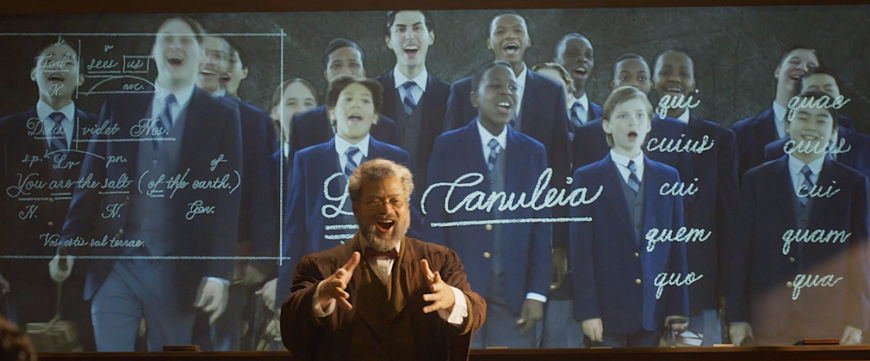
There’s much good cheer also in the fictional account of the more than six-decade tenure at Brookfield of a beloved schoolmaster, Arthur Chipping, nicknamed Mr. Chips. It is narrated in the first scene and at key points throughout the opera in Lynch’s warm, burnished, engaging baritone. His Merrivale moves on to an interaction with the octogenarian Chips, sweetly and vibrantly sung and acted by tenor Nathan Granner. Much of the opera, in fact, proceeds as dialogue. That this effectively commands the attention of the listener/viewer is to the credit of Getty, who both refashioned the book’s story and authored the engaging libretto, and to the direction of this production by Brian Staufenbiel, also credited as “concept creator.” Not to mention the cast who, in response to the demands of the movie camera, uniformly confirm that they can act as well as sing well. [Full disclosure: Gordon Getty is a principal donor to San Francisco Classical Voice.]
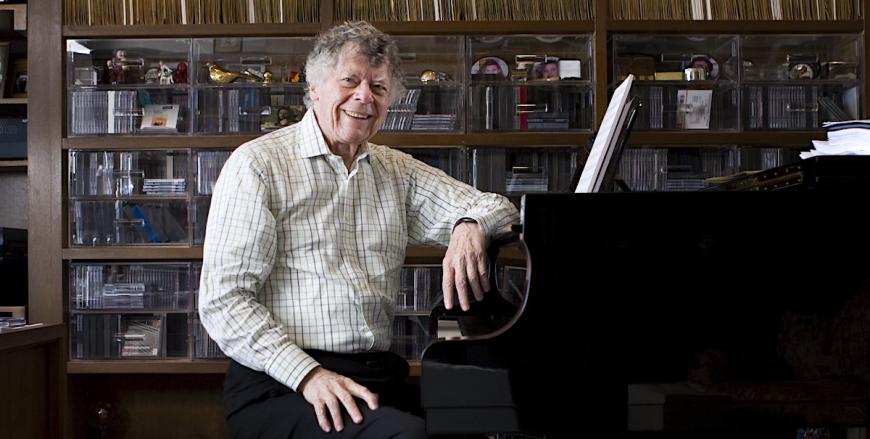
The filmic form of this work — a consequence of COVID’s interruption of the planned traditional staged premiere — also allows for intercutting, in Chips’s remembrance with Merrivale, of a flashback to his meetup with Kathie, a lively younger woman who becomes his bride, the love of his life, and an inspiration to his school. Soprano Marnie Breckenridge takes on this role with a loving, lyrical energy and tone, and Granner, with support from costume designer Callie Floor and hair and makeup designer Jenny-King Turko, achieves a credible metamorphosis to a young Chips.
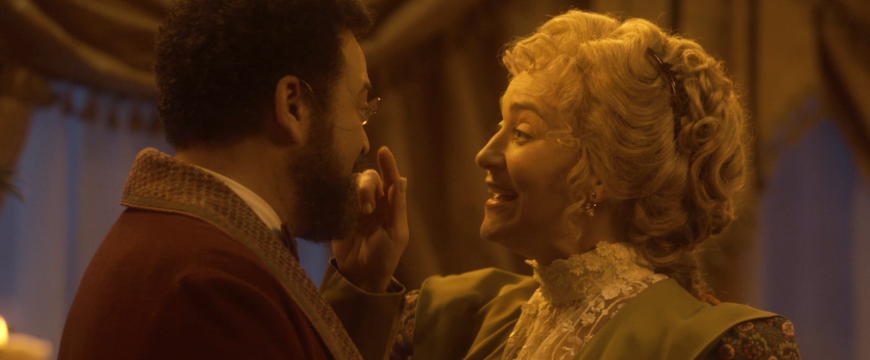
The scene of Kathie’s death in childbirth, coming as it does relatively early in the work, is a test of all creative elements, and it’s successfully passed. Director of photography Steven Condiotti, here and elsewhere, enhances the drama with artful closeups as Breckenridge, on Kathie’s deathbed, compellingly carries the music and lyrics as close as they will come to traditional tragic aria. Getty gives her in this scene a poetic expression of her inherent, persistent wit and affection, his composition dramatically dynamic but never maudlin. Equally affecting is the ensuing scene of Chips on a lonely trek after losing Kathie, the movie letting Granner intone in a plaintive musical voiceover. Camera pans and dollies allow for a kinetic momentum throughout the work, difficult to achieve in a staged opera.
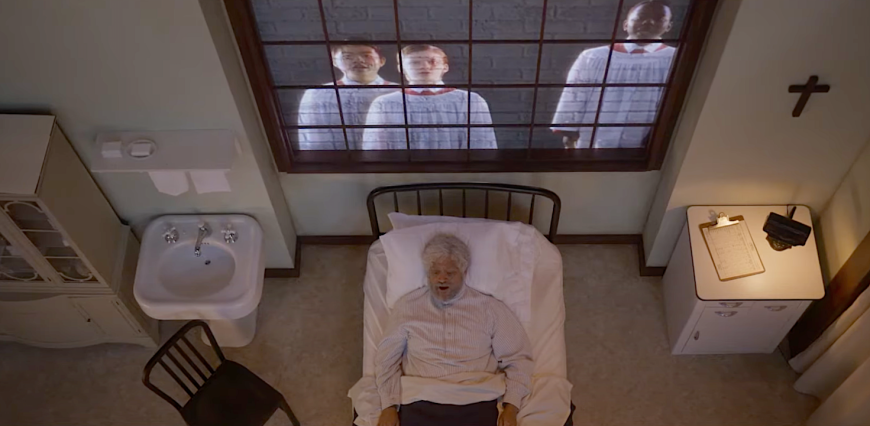
Among the opera/film’s several flashbacks is Chips’s run-in with a new headmaster, Ralston, who pressures him unsuccessfully, in the brooding basso voice of Kevin Short, to retire. Condiotti shoots this, à la Orson Welles, from alternative camera angles, low or high and tilted. Short doubles in the role of the benign Sir John Rivers, head of the school’s board of governors, who appoints Chips headmaster to succeed Ralston. After a scene with Rivers, Getty, with a poet’s innovative approach to words and phrasing, gives Chips an extended aria, in which the schoolmaster reflects on how his values of caring and knowledge inform his long career. Chips is accompanied by the sound of the Young People’s Chorus of New York City. They’re supported by an orchestra artfully and empathetically conducted throughout by Nicole Paiement, the results compiled by producer Leslie Ann Jones at Skywalker Sound. Granner’s mastery of vocal dynamics is highlighted here and in a jocular but tender speech-aria delivered at an end-of-term dinner, where his appreciative fellow faculty include (spoiler alert!) the composer himself.
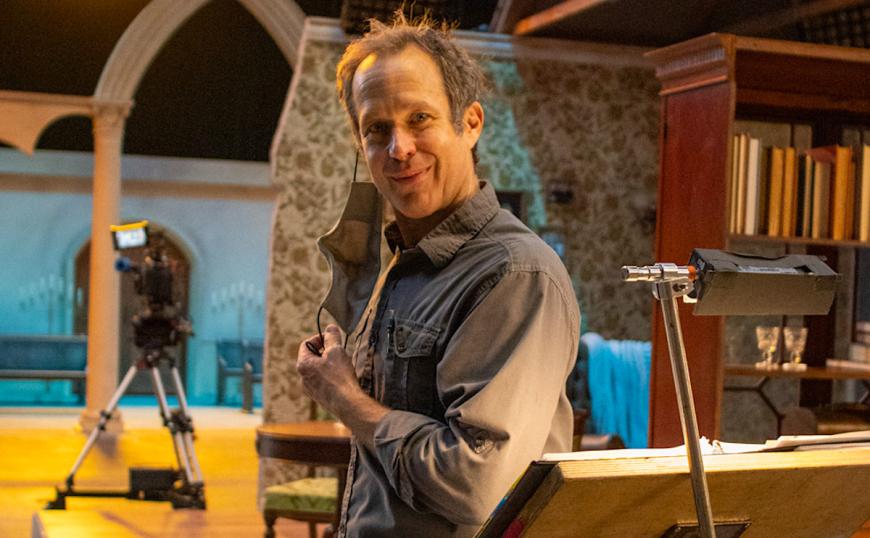
The pervasive affirmation of morality in Hilton’s novella is readily embraced by Getty and highlighted in a scene where the former bully headmaster and later larcenous industrialist Ralston comes to beg Chips for forgiveness and advice. On this same day, the last of his life, Chips is also visited by a brand new and nervous Brookfield student, Linford, sensitively acted by Ilan Casian-Issenberg. In a display of innovation, Getty has the singing voice of Linford supplied by Breckenridge, so that the boy’s parting words, “Goodbye, Mr. Chips,” echo Kathie’s dying words, in more ways than one.
Chips’s place in the lives of individual students is evinced in several shorter scenes involving talented singing actors from the Oakland School for the Arts: Alex Cook, Tristan Carless, Xander Vazquez, and William Lewis, as well as Casian-Issenberg. These episodes also serve to link the scope of the story to significant historical events, such as the sinking of the Titanic and the First World War. The final scene offers an external aerial shot of the collection of buildings where internal scenes are set and a revival of significant characters, including the boys of the school, collectively projected on the school’s walls and windows. Here’s a capping confirmation that movie magic has, in several senses, elicited the timelessness in this tale, helping to extend it beyond the conventions of both book and opera. But the tale is also very well served by some of Getty’s most appealing orchestration and setting for voice to date, clearly inspired by the subject matter and its messages of good will and redemption.
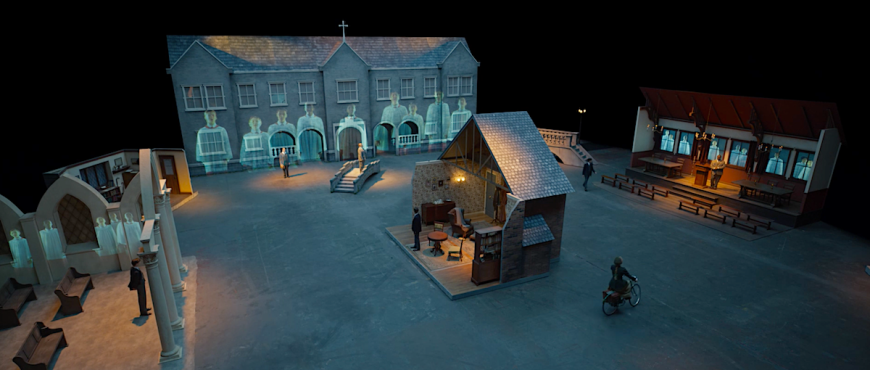
The appeal of Goodbye, Mr. Chips has been further extended to a large number of viewers in the Republic of China, over what’s been described as a new communication platform for cultural programming. In a collaboration between the New York City Opera and Festival Napa Valley, originally scheduled to stage the live premiere of the opera, the film will be screened at the Walter Reade Theater at Lincoln Center on February 9, 2022. It will also be made available to film festivals, its successful production helping to encourage interest in this still fresh and fascinating medium for opera.



